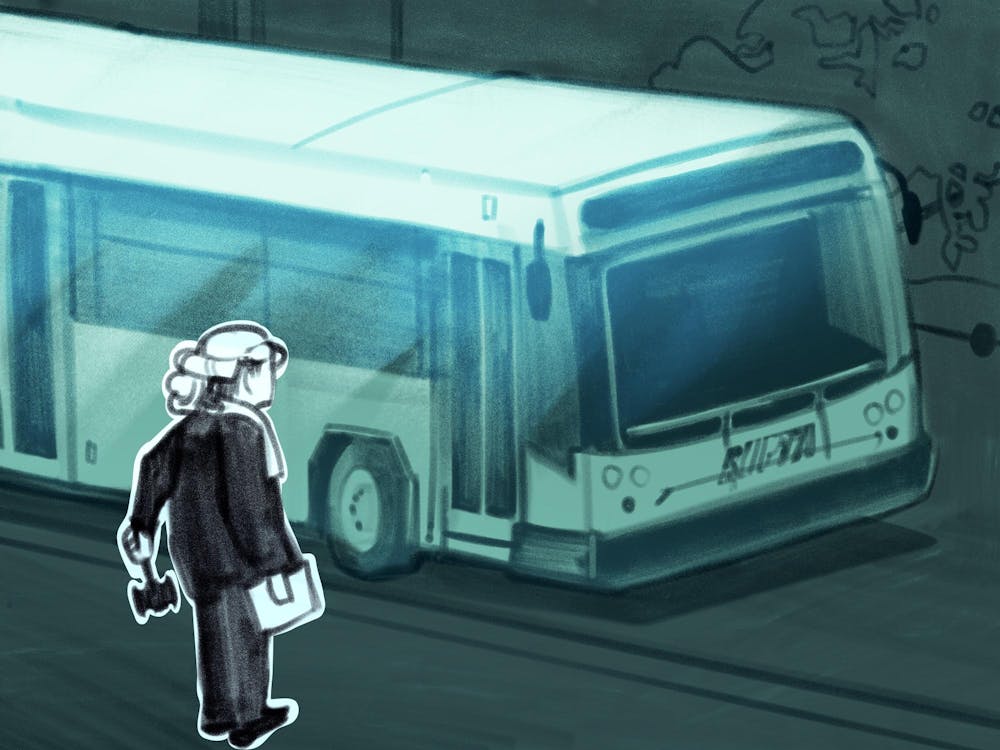RIPTA currently stands on the edge of a $40 million fiscal cliff set to tip over in July 2025 if the agency does not receive adequate funding. The transit organization, which is also facing a driver shortage, is considering service changes that would affect 33 routes, in many cases cutting and reducing service.
Last week, State House legislators introduced a $78 million bill that would help RIPTA avoid a fiscal cliff and put it on track to meet its Transit Master Plan, an ambitious roadmap for the transportation agency’s future that was adopted by the State Planning Council in 2020.
According to advocates, RIPTA could use $34 million of the budget proposed by the bill to fund the first year of the Transit Master Plan.
As part of that $78 million, advocates say RIPTA could use $34 million to fund the first year of the Transit Master Plan, which would expand service to new areas, improve existing service, boost accessibility and increase RIPTA’s capacity.
As RIPTA’s potential fiscal cliff approaches, The Herald spoke to advocates and policy experts about the Master Plan and the agency’s future.
RIPTA did not respond to multiple requests for comment from The Herald.
What is the Transit Master Plan?
The Transit Master Plan is a set of recommendations established by Rhode Island’s House of Representatives that aims to dramatically expand RIPTA’s service and capacity.
The plan is divided into five initiatives: improve existing services, expand services to new areas, develop high capacity transit, improve access to transit and make service more accessible. The plan characterizes most of RIPTA’s current service as “infrequent” and limited in hours of operation, making it less attractive for riders.
John Flaherty, deputy director at policy research nonprofit Grow Smart RI, said that he’s excited about the plan’s recommendations to increase service hours, frequency and weekend service, which could make RIPTA “a system that really works for people.”
But the plan’s implementation has been limited so far.
Amy Glidden, co-chair of advocacy group R.I. Transit Riders, said that, while implementation is not yet complete, she believes RIPTA has made the most progress on Master Plan initiatives. She pointed to the development of the Wave pass, to fare capping and to the providing of real-time bus information as examples of increased ease for riders.
RIPTA has also begun an analysis to decide between a new light rail system between Central Falls and Warwick and a new bus rapid transit system. One of the two plans would be funded by a $900,000 Department of Transportation grant.
Flaherty highlighted the importance of the Master Plan to the state achieving its climate goals outlined in the 2021 Act on Climate, since it would help reduce emissions generated by traffic. “There’s no way that we’re going to meet the mandate of the Act on Climate without implementing the Transit Master Plan,” he said.
How can the state fund RIPTA?
Though the $78 million bill would provide for RIPTA in the short term, the agency requires sustainable funding for both its service and implementation of the Transit Master Plan for long-term viability in the face of existing challenges.
The agency’s funding needs are especially stark as revenue from gas taxes, which RIPTA receives a portion of, is projected to decline, according to a state Senate brief. The declines may be spurred by drivers switching to electric vehicles, the brief states.
Glidden believes that taxing drivers for miles traveled and implementing another tax on heavy electric vehicles could help fund RIPTA.
The Eastern Transportation Coalition, a group of state transportation department leaders, is currently proposing a “mileage-based user fee,” which would charge drivers based on miles traveled.
Glidden additionally pointed to recent advocacy for a tax on high-income households that could be used to fund the agency. In 2022, Massachusetts approved a 4% surtax on incomes exceeding a million dollars which will be used to fund education and transit in the state.
What do Brown students think?
The student group Brown Initiative for Policy recently released a report that identifies potential solutions for funding RIPTA.
According to Maddock Thomas ’26, the head of BIP’s RIPTA team, the group chose to write the report “given the fiscal cliff and the urgent need to come up with funding.”
BIP’s plan focuses on novel funding mechanisms. Suggestions include using flexible federal highway administration funds, considering toll revenue raise and reallocation, examining a rideshare tax reallocation and additionally looking into increasing parking rates.
One of the suggestions in BIP’s proposal, a tax on rideshare services like Uber and Lyft, is currently being considered in the state legislature. BIP helped write House Bill 7678 and Senate Bill 2169.
Thomas added that many of the group’s other funding suggestions could bring in revenue “in the low millions to tens of millions of dollars.”
“You’re able to piece together a decent amount of funding, but it’s not going to fully replace your assets in the long term,” he noted.
Mikayla Kennedy is a Metro editor covering housing and transportation. They are a junior from New York City studying Political Science and Public Policy Economics.





